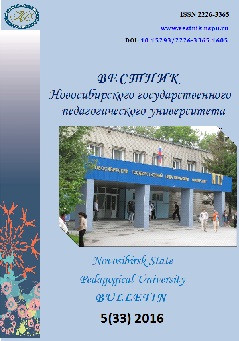Негативное проявление диалогичности в экстремистском религиозном сознании
Negative role of dialogue in formation of extremism religious consciousness
Author(s): Tatyana Vladimirovna Izluchenko, Vyachyaslav Ivanovich KudashovSubject(s): Religion and science , Individual Psychology, Personality Psychology, Sociology of Religion
Published by: Новосибирский государственный педагогический университет
Keywords: Religious extremism; extremist consciousness; dialogic consciousness; religious con-sciousness; extremist organizations
Summary/Abstract: The authors investigate the intrapersonal aspect relevant to modern Russian problems of religious extremism – the formation of extremism religious consciousness. The article presents the modern philosophical and psychological concept of dialogic consciousness as a fundamental property of personality, indicated dialogic interaction and extremist ideas within religious consciousness. The aim of the article is to identify the role of dialogic process in the emergence and development of extremist ideas within religious consciousness. The peculiarities of extremist religious consciousness and the mechanisms of religious consciousness radicalization are considered as ways of dialogic consciousness manifestations. Dialogic attributes of religious consciousness are presented as the subject of the research in the context of extremist ideas formation. The authors analyze the formation of extremism religious consciousness, emphasizing the existence of prerequisites of extremist ideas in the mind of every individual, and determining the interdependence of extremism, religious and dialogic consciousness. The authors consider how extremist religious organizations justify their activities analyzing the example of such ter-rorist organization as Hizb ut-Tahrir and such international religious organizations as Nurdzhular and Al-Takfir Val-Hijra. Formation of the “We and They” policy is the key reason for joining religious extremist organizations. According to the policy of these organizations a legal punishment is presented as a tool of estimation the sincerity and dedication to the religious community, thus ensuring the integrity of the community and its resistance to the State. As a result of purposeful systemic activities of religious extremist organizations, dialogical conscious-ness is presents as a tool of setting of the individual in opposition to the outside world and representatives of different views, and searching for evidence of legitimacy of extremist organization activities.
Journal: Вестник Новосибирского государственного педагогического университета
- Issue Year: 6/2016
- Issue No: 5
- Page Range: 130-143
- Page Count: 14
- Language: Russian

